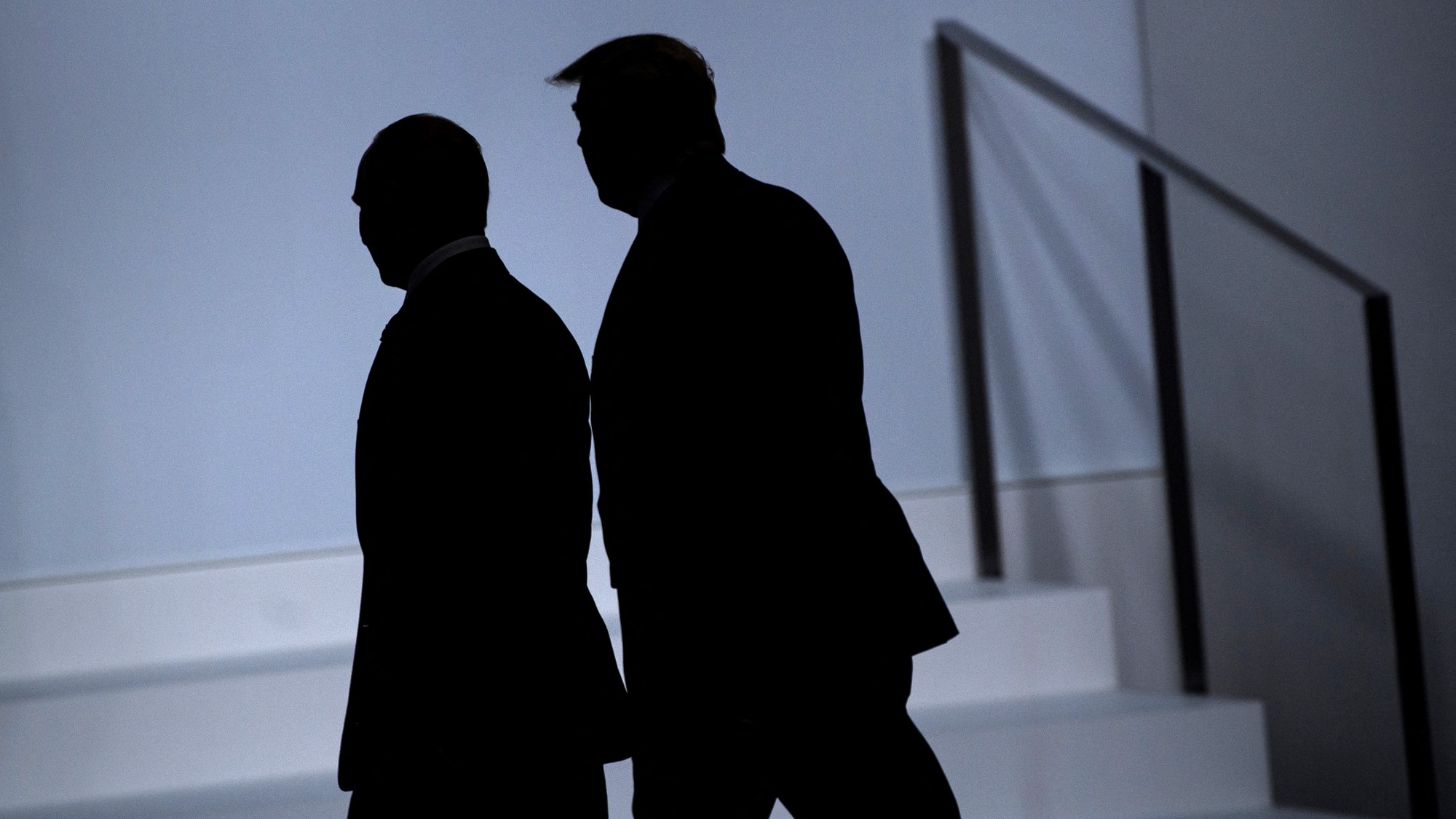Who wins from a Trump-Putin meeting?
US president's hope that face-to-face talks can end the war in Ukraine look 'impossibly optimistic', say analysts

A free daily email with the biggest news stories of the day – and the best features from TheWeek.com
You are now subscribed
Your newsletter sign-up was successful
Not for the first time, Donald Trump might have jumped the gun when it comes to Vladimir Putin, leaving President Zelenskyy and a mutually agreeable ceasefire in Ukraine appearing equally lost.
President Trump's hope that he can end the war in Ukraine is "impossibly optimistic", said CNN. He plans to meet the Russian president as soon as next week – although Moscow might "bristle at the rush" – and Trump told European leaders on Wednesday that he wants to follow it with a trilateral meeting between him, Putin and Zelenskyy.
But while Yuri Ushakov, a key Putin aide, confirmed that the US and Russia have "essentially reached" an agreement to hold a meeting between Putin and Trump "in the coming days", the prospect of a three-way summit looks very unlikely. "This was just something mentioned by the American side during the meeting in the Kremlin. But this was not discussed. The Russian side left this option completely without comment," said Ushakov.
The Week
Escape your echo chamber. Get the facts behind the news, plus analysis from multiple perspectives.

Sign up for The Week's Free Newsletters
From our morning news briefing to a weekly Good News Newsletter, get the best of The Week delivered directly to your inbox.
From our morning news briefing to a weekly Good News Newsletter, get the best of The Week delivered directly to your inbox.
What did the commentators say?
Putin's reasons for continuing the war are stronger than "any incentive Trump can give him to end it", said CNN.
Taking part in negotiations could just be a stalling tactic to buy time while Russia's summer military offensive continues to make gains in eastern Ukraine. Pressure from Trump might deliver a partial win, such as a promise to halt air attacks on civilians, but "Russian ceasefire pledges are often not worth the paper they are written on".
"The entire Putin regime is based on not just concluding this war on Russian terms but continuing to fight it … the entire economy is propped up around the war," David Salvo, a Russia expert, told CNN.
Regardless of the outcome, the mere occurrence of a meeting with Trump would "represent something of a victory" for Putin, who has largely been ostracised by Nato leaders since the Ukraine invasion, said The New York Times.
A free daily email with the biggest news stories of the day – and the best features from TheWeek.com
The plan reflects the US president's "deep belief that his powers of persuasion, especially in an in-person meeting, are the only way to strike a bargain". That instinct was behind Trump's attempts in his first term to negotiate with Kim Jong Un of North Korea – meetings that were "cordial and an utter failure", theatrical photo opportunities that did nothing to slow North Korea's nuclear weapons programme.
Putin could use Trump's preference for face-to-face negotiations to his advantage by manipulating Trump's eagerness for a deal to put pressure on Zelenskyy to make concessions, said The Washington Post.
While the US president signalled his impatience with Russia by punishing India with higher tariffs for buying Russian oil, they won't take effect for three weeks, which gives Russian forces more time to advance in Ukraine. A partial ceasefire could disproportionately hamper Ukraine, which relies on drones to attack key Russian military production facilities, without halting Russia's slow but steady progress on the ground.
What next?
Up for discussion at the meeting could be the fact that the Trump administration has proposed a tough new sanctions package designed to "strike at the core of Russia's war financing: its global oil exports" and a crackdown on its "shadow fleet" of ageing oil tankers that carry Russian crude to India, China and other countries, said Time. A bipartisan Senate bill seeks to impose tariffs of up to 500% on countries that continue to import Russian energy and Trump has said he is "very strongly" considering endorsing it.
If a meeting goes ahead, there are no signs that Putin would concede his unwavering demands. Trump sees himself as a great dealmaker but he has splintered so many alliances since taking office in January that Russia is now in a relatively stronger position.
"Because Donald Trump has changed so many deadlines and he's twisted one way or another, I don't think Putin takes him seriously," Nina Khrushcheva, a professor of international affairs at New York's The New School, told the BBC.